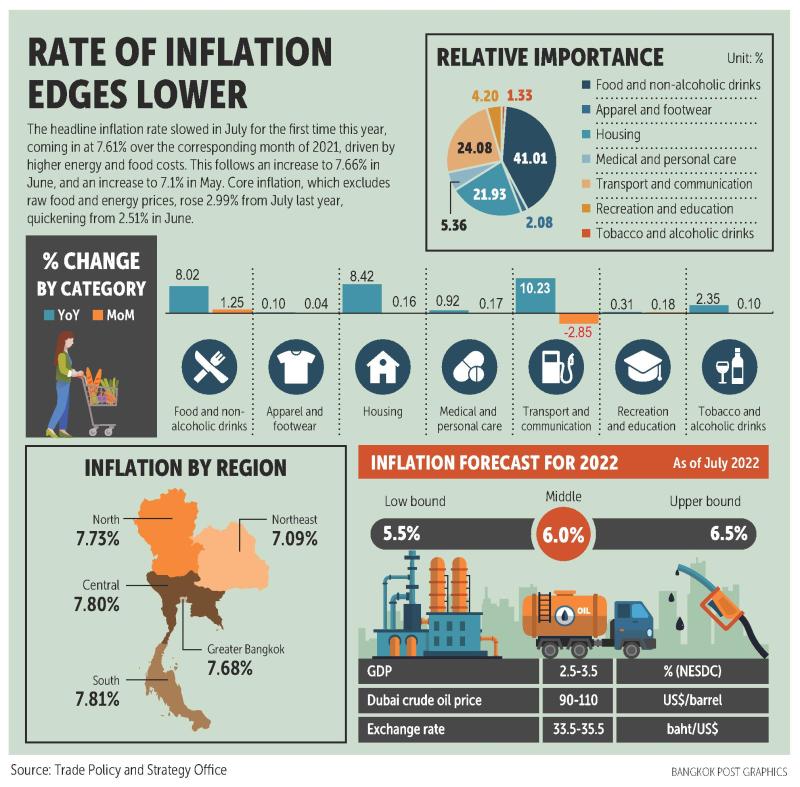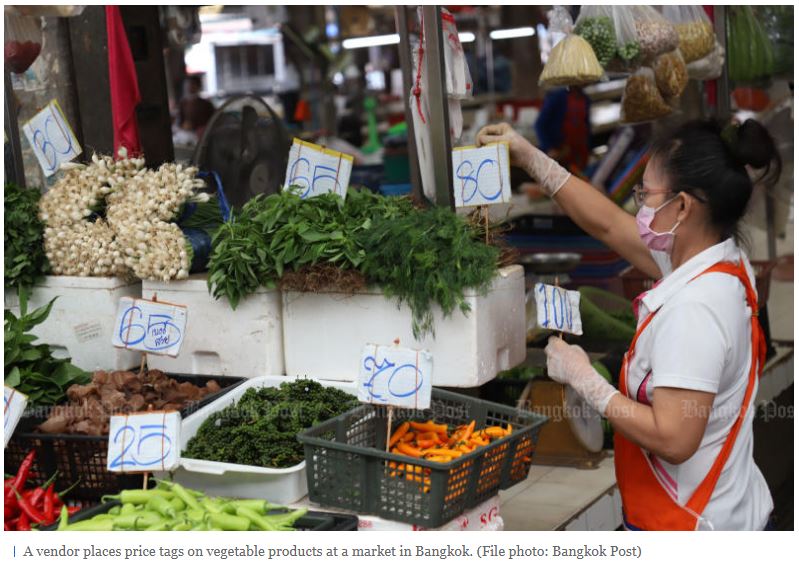Thailand: Commerce Ministry ups headline inflation forecast
The continuing rise in energy prices which have raised production costs for manufacturers and the prices of goods has prompted the Commerce Ministry to upgrade the forecast for headline inflation in 2022 to a range of 5.5-6.5% (averaging 6%) from the 4-5% range (averaging 4.5%) projected in March.

The new projection was based on an assumption of 2.5-3.5% GDP growth, Dubai crude oil prices at US$90-110 per barrel and a foreign exchange rate of 33.5-35.5 baht per dollar.
According to Ronnarong Phoolpipat, director-general of the Trade Policy and Strategy Office under the Commerce Ministry, energy prices, which account for 52.5% of headline inflation, rose on a continuous basis, affecting overall production costs and product prices, and they are expected to rise further because of external factors, particularly the Russia-Ukraine war.
He said his department is also closely following up on the impact of electricity charges, which account for 3.85% of headline inflation, on domestic inflation rates.
“In the remaining five months of the year, price pressures are expected to persist,” said Mr Ronnarong.
“But the rates will bank on external factors and the oil prices. However, the new rate projection reflects current economic figures and is in line with the projections released by other state agencies.”
He cited the National Economic and Social Development Council forecast for the inflation rate to stay in a range of 4.2-5.2% this year, with the Bank of Thailand predicting the rate at 6.2%, the Fiscal Policy Office at 6.5%, the Joint Standing Committee on Commerce, Industry and Banking at 5.7% and private banks in a range of 5.9%-6%.
In a related development, the Trade Policy and Strategy Office reported yesterday that headline inflation, gauged by the consumer price index (CPI), slowed to a 7.61% year-on-year rise in July after a sharp increase of 7.66% in June which accelerated from a 7.1% increase in May and a 4.7% rise in April.
The main contributors to July’s inflation rate hike were energy, food and non-alcoholic beverages.
Energy prices increased by 33.8% year-on-year in July, while the prices of food and non-alcoholic beverages increased by 8.02% from the same month last year.
Mr Ronnarong said although gasoline prices decreased slightly compared to last month, production and logistics costs remained at a high level following the high prices of liquefied petroleum gas (LPG), electricity and diesel.
Meanwhile, prices of fresh chicken, chillies, spring onions, seasonings, condiments and prepared food increased due to high energy costs including electricity and LPG as well as diesel prices which largely contributed to logistics costs.
Prices of several items dropped such as rice, glutinous rice and some fruits and vegetables (long beans, limes, ginger, Chinese kale, sugar bananas, guavas and longans).
According to the ministry, on a monthly basis, the CPI contracted for the first time since January, down by 0.16% from June.
The contraction was partly due to government measures and a partial retail price freeze in collaboration with manufacturers to ease the burden of the rising cost of living.
Core CPI, which excludes raw food and energy prices, saw a year-on-year rise of 2.99% in July, accelerating from 2.51% in June.
Source: https://www.bangkokpost.com/business/2362532/commerce-ministry-ups-headline-inflation-forecast


 English
English




